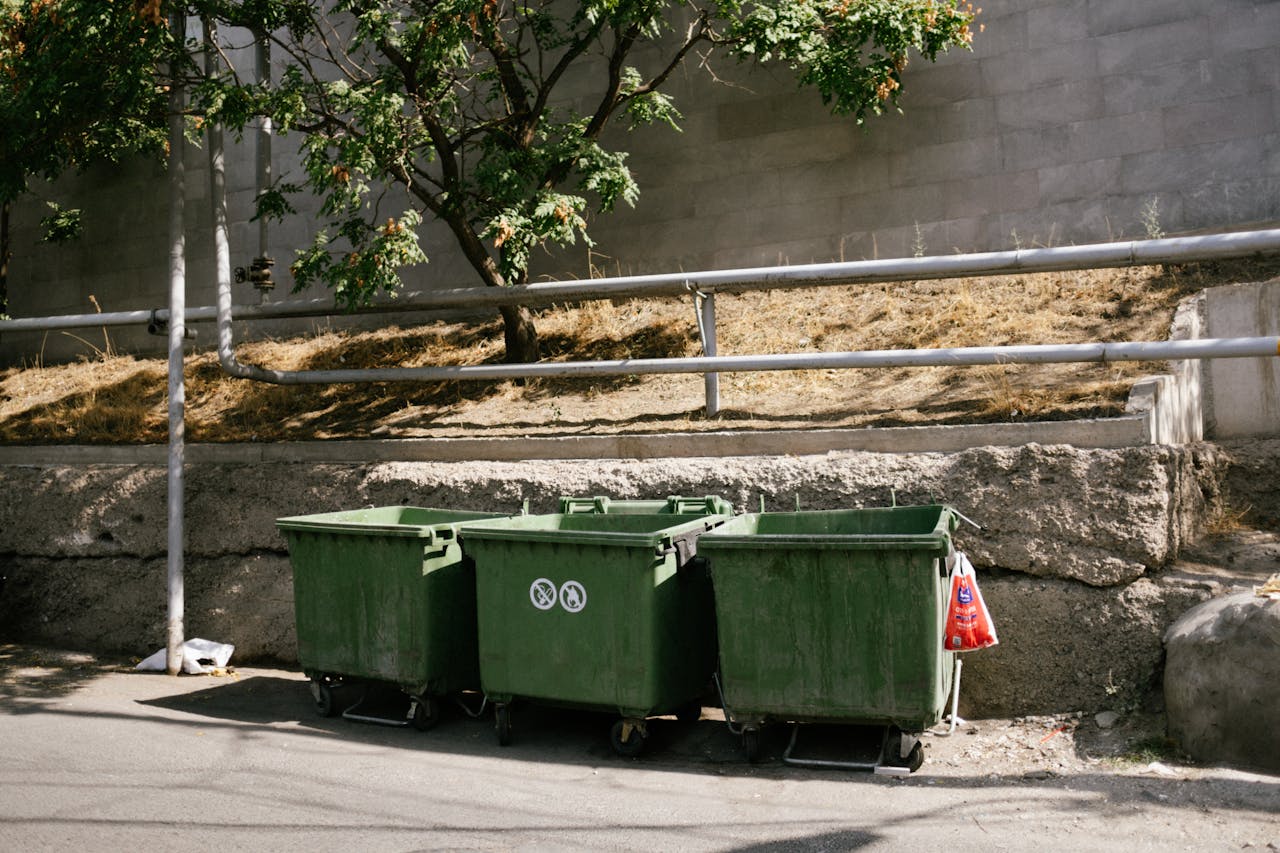
Waste management has long been a critical issue for urban and rural communities, posing significant challenges to public health, environmental sustainability, and economic stability. With the rapid advancement of technology, innovative solutions are emerging to tackle these challenges more effectively and efficiently. These technologies are revolutionizing how we collect, process, and dispose of waste, making it possible to minimize environmental impact and maximize resource recovery.
This article explores some of the most promising innovations in waste management and their transformative impact on the environment. For those seeking efficient waste management solutions, pike road dumpster services offer state-of-the-art options to manage your waste effectively.
IoT Integration and Smart Waste Bins
One of the most notable technological trends is the IoT, which has also been adopted in waste management. Containers also contain waste level monitoring, and they are connected and contain sensors that make them bright. Waste level sensors help identify when a bin is full and inform waste management operators of the best routes and times to pick up the bins. Deploying fuel-efficient collection methods also decreases waste collection trucks' operational costs and pollution levels.
Furthermore, the use of IoT in waste bins can sort waste, and this implies that sorting at the source is easy. This enhances the efficiency of recycling processes and the retrieval of recyclable products, and it lowers contamination levels, which is instrumental in the success of recycling initiatives. Therefore, data analytics can help municipalities and companies better understand the frequency of waste generation, which in turn can help create improved waste management policies and programs.
Advanced Recycling Technologies
Recycling technologies of prior decades proved to be cumbersome and often contained a high incidence of contamination and inefficiency such that much of the recyclable material ended up in landfills. However, new inventions in the field of recycling technology are mitigating this situation. Optical sorting systems, for instance, employ a camera and sensors to sort out different materials independently. These systems are exact and capable of handling significant volumes of waste within short periods, thereby increasing the efficiency of facilities that are involved in recycling processes.
Chemical recycling is another revolutionary discovery out of the vast innovations that technology has provided in the current world. Chemical recycling thus stands in contrast to mechanical recycling, where materials undergo a physical altering. This enables the generation of ‘shut-tight’ valuable feed products that are recyclable from contaminated or composite waste streams. Chemical recycling is advantageous as it helps in waste management through its disposal in a proper means other than landfills. It also helps decrease the use of virgin materials and, hence, the preservation of natural resources, besides being a way of cutting down on greenhouse gases.
Waste-to-Energy Technologies
Techniques such as waste-to-energy technology are becoming common as they help manage waste while producing clean energy. Technologies like anaerobic digestion and thermal treatment convert waste to biogas or electricity, such as waste-to-energy (WTE). WTE is a process in which organic materials are decomposed under anaerobic conditions, and the main product is biogas, which can be utilized to generate heat and electricity or as fuel for vehicles.
Pyrolysis and combustion processes like incineration and gasification involve burning or other heat treatment processes to generate energy from waste. These processes make it possible to produce a large amount of energy in the form of electricity and heat with minimal waste generation. Newer generation WTE plants have installed emission control systems that can effectively reduce airborne pollutants, making WTE a cleaner option than traditional waste disposal methods.
The Environmental Impact
Therefore, it is evident that the use of advanced technologies in waste management has an immense environmental impact. Using intelligent waste bins and IoT also helps reduce the amount of carbon generated through the fuel used to transport waste collectors around the city. They also increase recycling ratios since correct waste disposal reduces landfill dependency and increases resource recycling.
Better recycling technologies lower landfill use even more since they produce higher-quality and increased volumes of recycled items. Chemical recycling, in particular, can be considered a more eco-friendly and efficient way of dealing with plastic waste, one of the biggest challenges of the modern world. By recycling plastics into valuable raw materials, chemical recycling effectively manages the pollution caused by plastics while saving natural resources.
Waste-to-energy technologies contribute to reducing greenhouse gas emissions by diverting organic waste from landfills, where it would decompose and release methane—a potent greenhouse gas. Additionally, the renewable energy generated from WTE processes helps offset the use of fossil fuels, further decreasing carbon emissions.
Conclusion
New systems in waste management are now emerging as a sign of the modern world's way of managing waste by using efficient, sustainable, and environmentally friendly systems. These improvements include intelligent bins that recycle waste, IoT-based waste management, innovative recycling models, and waste-to-energy technologies that respond to the significant issues of waste management with low impacts.
With these emerging technologies actively promoted and integrated into waste management practices, enhanced levels of cleanliness, health, and sustainability are highly probable. For communities and businesses eager to adopt these advancements, portable waste management solutions offered by the Pike Road dumpster services guarantee the necessary tools and professional know-how to mitigate the negative impacts of waste disposal on the environment.
